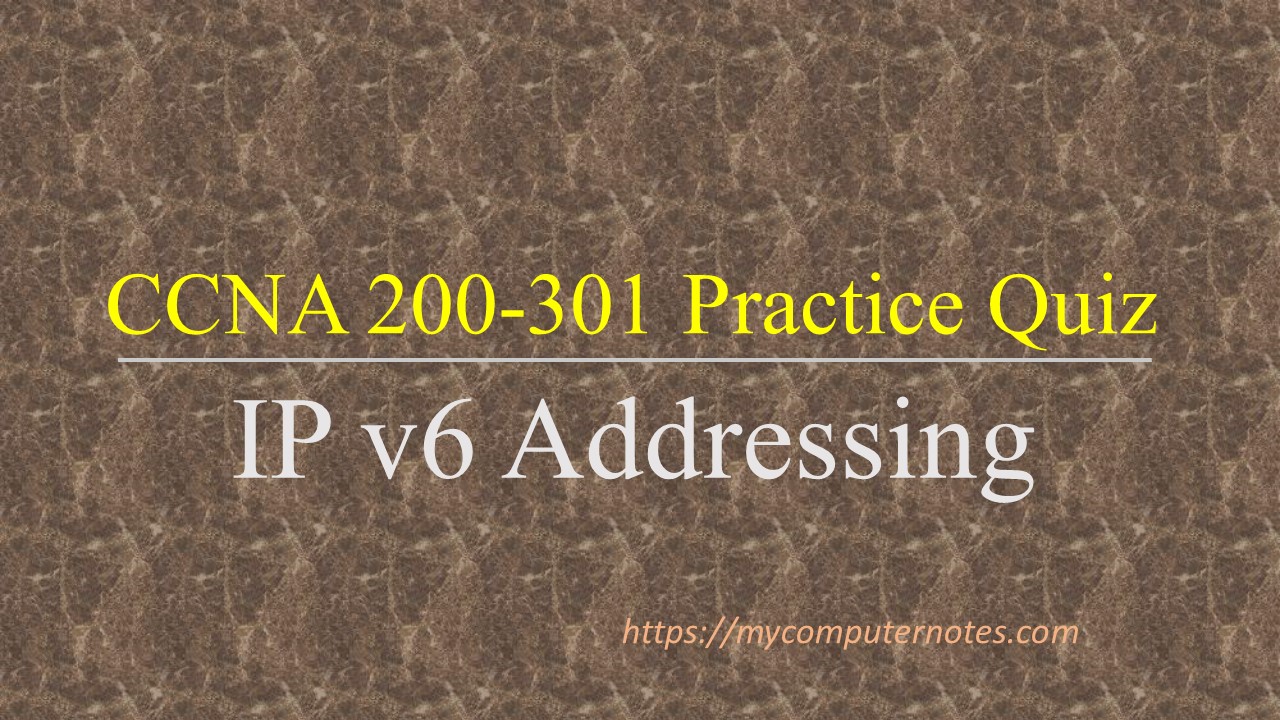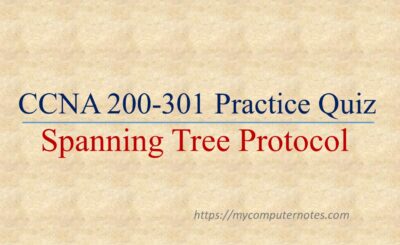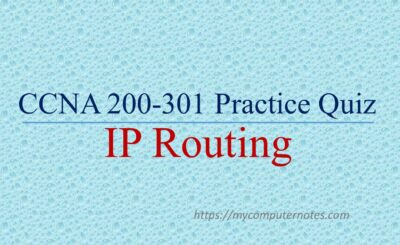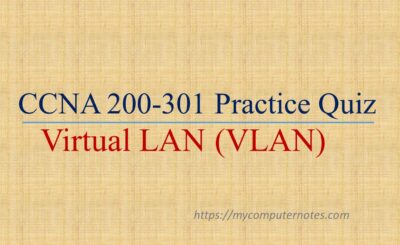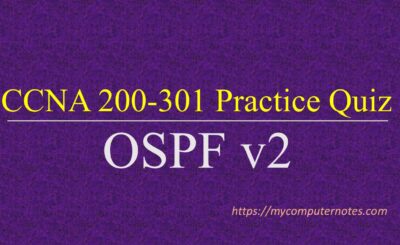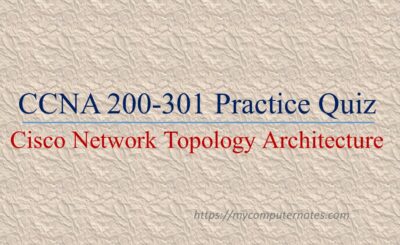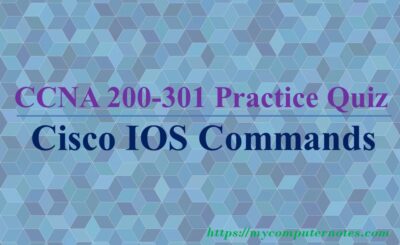
This quiz section contains a CCNA practice quiz on IP v6 Addressing. You can test your skills on the basic concept of the IPv6 Addressing scheme. The following quiz section contains multiple-choice questions, drag and drops as well as “refer to the exhibit” questions as per the CCNA 200-301 Exam pattern.
The CCNA practice quiz is very helpful for the preparation for CCNA 200-301 certification exam.
Each question is provided with the correct answer and an explanation for the correct answer. Click on the button named “Answer” just below the question to view the answer and the explanation. You can hide the answer and the explanation by re-clicking the “Answer” button.
CCNA Practice Quiz – IP v6 Addressing
|
1. Which of the following IPv6 Unicast address block sends packets to multicast address rather than unicast address?
Answer: Option B Explanation: The correct option is B.
|
|
2. The address length of IP v4 is 32 bits. What is the address length of IP v6?
Answer: Option D Explanation: The correct option is D.
|
|
3. IP v6 is also named as ___________.
Answer: Option B Explanation: The correct option is B. IPng stands for IP next generation.
|
|
4. Which of the following address is supported by IP v6, but not by IP v4?
Answer: Option C Explanation: The correct answer is C.
|
5. What is the header length of an IP v6 datagram?
Answer: Option D Explanation: The correct option is D.
|
6. Which of the following features of IP v4 are not present in IP v6?
Answer: Option D Explanation: The correct option is D.
|
7. Which of the following is not a valid IP v6 address?
Answer: Option A Explanation: The correct answer is option A.
|
|
8. Which of the following IP v6 address is equivalent to the IP v4 loopback address 127.0.0.1?
Answer: Option A Explanation: The correct answer is option A
|
9. Which of the following statements are true about IP v6?.
Answer: Option D Explanation: The correct answer is option D.
|
10.Which of the following event occurs when a host sends IPv6 broadcast into the VLAN?
Answer: Option C Explanation: The correct answer is option C.
|
|
11. Which od the folooqing is the correct way of shortening of IP v6 address 2001:0DB1:0000:0000:0000:F235:0000:052C?
Answer: Option C Explanation: The correct answer is option C.
|
|
12. One of the following commands must be enabled on a router for IP v6 routing?
Answer: Option C Explanation: The correct option is C.
|
13. Which of the following statements are true regarding link-local address in IP v6?
Answer: Explanation: The correct option is D. |
14. Which of the following is true about the global unicast address in IP v6?
Answer: Option D Explanation: The correct option is D.
|
|
15. IPv4 and IPv6 cannot communicate with each other. However, modern routers can be configured with both versions of IP addresses. What is the term used to denote the routers that can handle both IPv4 and IPv6 addressing scheme?
Answer: Option B Explanation: The correct option is B.
|
|
16. A router interface is configured with ipv6 address FF80::/32. But, it is not shown on the routing table.. What may be the reason?
Answer: Option C Explanation: The correct option is C.
|
17. Which of the followings are the valid IPv6 address? (choose any three)
Answer: Option A, B and C Explanation: The correct answers are A,B and C.
|
|
18.Which of the followings is the correct sequence of converting mac address into interface-id?
Answer: Option B Explanation: The correct option is B.
|
|
19. Which of the following address is automatically configured, when you use the command below to the router interface? Router(config-if)#ipv6 enable
Answer: Option D Explanation: The correct option is D.
|
|
20. Which of the following is not a valid ipv6 multicast scope
Answer: Option D Explanation: The correct option is D.
|
| ← Prev | Next → |
